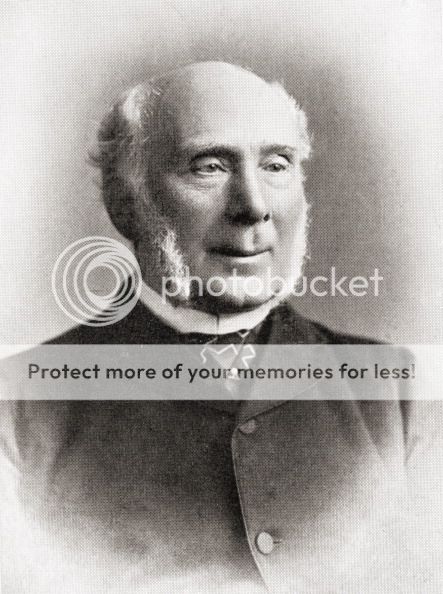Full Name: Emilie Morgaine Riebau
Social Status: Artisan
Civil Status: Single
Occupation: Personal Assistant to Professor William Dalrymple (unofficially: inventor)
Country of Origin: England
Age: 20
Family Members:
George Riebau (father), Elaine Riebau (mother). Brothers: George Jr, James, Emmett (deceased), Horatio Nelson, Martin (deceased). Sisters: Marie Sudwick (nee Riebau), Amy, Emma, Natalie (deceased)
Homes: 48 Blandford St., Westminster W1, London (childhood family home),
Newhailes near Musselburgh, Scotland, Professor Dalrymple's suite, Oxford University
Personality: Emilie avidly follows the latest developments in natural philosophy. Presently she has become especially bedazzled by the "
air engine"recently patented by Robert Stirling, envisioning applications for it in everything from clockwork automatons to the experimental flying machines of
George Cayley. She is equally eager to make her own contributions, even if these must be introduced under Professor Dalrymple's name. She dreams of a world where machines and automatons will do the work of servants and laborers, and everyone can be elevated to live as the gentry do now.
Emilie shines in front of the mostly-male audiences who come to Professor Dalrymple's lectures and technical demonstrations, and even the more showy presentations of Professor Dalrymple's Cabinet of Curiosities, performed before audiences of gentry and nobility, to attract more funding for the Professor's research. Put her in a soiree or high tea with other women however, where she is supposed to join conversations about men and gossip and fashions and children, and she becomes silent and taciturn. Inside, she feels as if she's being quietly strangled, and can barely manage the occasional "that's brilliant" or "yes, that dress looks lovely on you, I am sure he cannot fail to notice."
Lately, she has started to feel herself drawn toward radical politics, such as the abolitionist movement, and proto-feminist writers such as Jeremy Bentham, the Marquis de Condorcet, and Mary Wollstonecraft. Uncomfortable with the idea of becoming some kind of political agitator or revolutionary, especially in the wake of the Reign of Terror, she pins her hopes on literally
building a world where women, slaves, and the laboring classes are set free by machines.
Background:
Early Years:
Emilie was born the second eldest daughter of a book-binder and printer, and developed a love of books from an early age. Elaine frowned on her daughter's excessive interest, especially when it turned toward "manly" subjects like mathematics and the workings of the natural world. Her father George was more indulgent, however. For one thing, at least
someone among his growing brood was interested in the family business, what with his sons all dreaming of finding adventure and glory in the wars. For another, little Emilie could produce the most heart-melting Adorable Face in the history of Western civilization, at least if her father was to be the judge.
It wasn't long before she exhausted the resources of her father's little bookshop, and took whatever free time she had to explore the national library at the British Museum, the only library that was free and open to the public. When she was nine years old, her father took in a young apprentice named Michael Faraday. He shared her interests, and helped her learn while he educated himself. Both drew particular inspiration from
Conversations on Chemistry, Intended More Especially for the Female Sex, published anonymously in 1805. It was especially eye-opening for Emilie, since the book explained the science of chemistry through a dialogue between female characters, one of whom even shared her first name.
Professor's Assistant:
Hard times hit the family as more children were born, while George Jr. and Emmett both joined the army. With only James and Faraday at home to help run the family business, money was tight. The family started taking in laundry for washing and other odd jobs the daughters could do. Chafing against this new drudgery, Emilie started making drawings for an improved "patent washing mill" (early washing machine) that could be powered by a treadle. The family had no money to even attempt to experiment with such things, and her mother started to scold her fiercely to forget such flights of fancy and accept her lot. One day she'd be married, and there would always,
always be washing.
Emilie's salvation came when a professor at Oxford, Professor William Dalrymple, uncle of Sir James Dalrymple, the 5th Baronet of Hailes, came into the shop. He was seeking a laboratory and workshop assistant, and needed handbills printed. Overhearing the professor from upstairs as he described the attributes and skills he sought, Emilie abandoned her mending, ran for her room, then came back downstairs and burst into the shop waving a sheaf of drawings she'd made. "I could be your assistant, Mr. Professor sir! I'll work hard day and night!" "Emilie! You get back to your mending
this instant!" Elaine snapped. "I'm so sorry, sir!" she said to the Professor.
"Please sir?" Emilie said, holding up her drawings and giving her very best Adorable Face. The need not to make a scene in front of such a potentially important client was the only thing that kept Elaine from giving her daughter a beating on the spot. "Oh, it's no trouble at all," the grandfatherly gentleman said, bending down to look at the drawings with an indulgent smile on his face. The smile faded, and his brows knit together as his eyes raked over the array of wheels, gears, and belts dominated by a cylindrical drum.
"Well, what have we here?" Professor Dalrymple said. "It's a patent mill for washing sir, with a foot treadle so that the hands are free to hold a book!" Emilie replied. "Where did you get these? Did you make them?" Emilie nodded, curls bouncing. "Well, this is quite a thing! Though the gearing ratio between these two wheels would not offer sufficient torque to get such a drum turning if filled with water, and you'd need a flywheel to..." Professor Dalrymple began.
George Riebau knew when his wife was about to snap, and this was such a time. Before she could pull an arm back to slap some sense into her daughter and get her back to her mending, he gently pulled her away.
"He adores her," he whispered.
"Hit her now and we could lose his business! She'll only take up a little...of his...time..." By now the Professor and Emilie were thoroughly engrossed in a conversation about machinery, and George was having an inspiration.
"What if we offered to hire her to him?" "George, be serious! Machinery is men's work." "Think of it though! If we can hire her out to him, we'll get at least as much as her work pays now, and we wouldn't have to feed and clothe her! She's going to start blossoming into womanhood soon. As his assistant, she'll meet young men of letters and learning, better matches than we can offer. And just look at her. You do want her to be happy, don't you?"
Daft as the notion was in Elaine's mind, she held her tongue as her husband went back to try to negotiate a deal. No teacher worth their salt can resist the lure of an eager, brilliant young mind, and Professor Dalrymple was no exception. Though having a twelve year-old girl as his assistant was a bit of an irregularity, she would not be able to steal his inventions and claim credit for them as an ambitious young man might. And furthermore, perhaps feminine tenderness might be a good thing to have in an assistant, when he had one of his...lapses. Sometimes Professor Dalrymple forgot what he was doing completely, or found himself in a room or somewhere out in the countryside without any memory of how he got there. The young girl looking up at him with adoring eyes like a granddaughter might be more...forgiving, more accepting, than some up-and-coming boy would in her place. And if "society" didn't like it, well, he was old enough to get away with ignoring a few conventions.
And so it came to pass that Emilie found herself on a coach to Oxford with an old, battered trunk stuffed with her clothes and a few beloved books that had come off the press marred in ways that made them unsaleable. As promised, she poured herself completely into her work, and into learning, day and night. As the Professor had hoped, she had nothing but compassion for him when his mind decided to stop cooperating.
Over the years, his lapses worsened and became more frequent. His inventions and publications gradually became less "his" and more hers. To the outside world, it seemed that "old Dalrymple" was more brilliant (and also more eccentric) than ever.
Present Time:
Emilie absolutely loves her life, and it is doomed. Of course she wishes she could patent her inventions in her own name, but she loves Professor Dalrymple enough to be happy for him when he receives an accolade. His worsening condition is getting more difficult to hide. She writes his lectures and speeches for him, and comes up with subtle ways to give him cues when he loses the plot, and uses her beauty to captivate audiences during demonstrations, and creates misdirection to hide the fact that she is effectively the one in charge.
Her own condition--beauteous young womanhood--is also drawing the sort of attention that she doesn't quite know what to do with: interest and pursuit from young men, and the mounting expectation that she should marry soon. She lives in fear of the day that "her" laboratory, workshop, and inventions will be taken from her, and replaced by never-ending mounds of laundry.
---
OT: I will post Professor Dalrymple's character bio as soon as I get it written. I also have an idea for a young Ottoman nobleman in London to serve as an ambassador for the Empire (to maintain current gender balance of younger characters involved in the courtship aspect of the Waltz), but that might take awhile. For one thing, I have no earthly idea what house he'd live in in London. ;)
Also, I hope Emilie's childhood acquaintance with Michael Faraday is OK. When I saw that he was apprentice to a bookbinder/seller after initially posting this, I couldn't resist editing her father's name to make him be the one Faraday apprenticed under. Plus, it gave me
an address for Emilie's family home. :)




